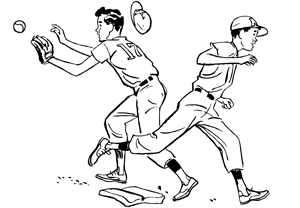Homeowner Associations
Homeowner Associations

Homeowners associations (HOAs) exist to administer subdivision, condominium and other community-owned residential property, taking over the responsibilities from the real estate developer. Created under a subdivision indenture, declaration of condominium or other recorded instrument, the rights and duties of HOAs are set forth with varying degrees of clarity.
Generally, but not always, HOAs are incorporated and governed by a Board of Directors, a Board of Trustees or a Board of Managers who are elected to make decisions on behalf of the association. These management boards consist of not less than 3 persons elected by the residents on an annual basis to terms of 1, 2 or 3 years.
As an operating entity, each association has bylaws, or indentures, that guide the trustees and residents. HOAs and their Boards are duty-bound to enforce the subdivision indenture, condominium declaration or other instrument fairly and collect and disburse funds in such amounts to provide for the necessities and amenities of the subdivision, condominium or other community-owned property.
Occasionally, a HOA runs afoul of its limitations or fails to enforce or impartially and fairly enforce the subdivision indenture or condo declaration. In such a case, after being notified of a purported situation in violation of its governing documents, the HOA either has to defend itself or make adjustments to its operating procedures. And after notice, if no correction occurs, appropriate action by the owners to enforce the indenture or declaration may be appropriate.
For trustees, homeowners, and property managers, the legal issues surrounding the association can run from traditional real estate questions involving buying or selling property to more complicated questions involving the nonprofit structure or management of the association itself.
Our attorneys work regularly in the areas of law that associations may need to address, including, for example:
- Administrative Law
- Bankruptcy & Collections
- Corporate Law
- Environmental Law
- Landlord/Tenant Law
- Municipal/Zoning Law
- Nonprofit Law
- Public Utilities Law
- Real Estate
Our experienced attorneys regularly represent all types of homeowner associations — condominium, subdivision, villa and road. We look forward to doing so in your situation if the need should so arise.
Additional HOA-related topics:
Homeowner Associations Articles
CTA Appears to Go Quietly Away – For the Most Part: Reporting Is Likely Off Your To-Do List
After a slow start, the Corporate Transparency Act ("CTA") and its companion, the Beneficial Ownership Information Report ("BOIR"), appear to have fizzled out for most companies. The BOIR reporting requirement was intended to extend the Anti-Money Laundering Act's...
Fifth Circuit Renews Injunction Against Enforceability of the CTA
Who's on First? Abbott and Costello Routine Revived for Corporate Transparency Act Much like the beloved and timeless zaniness of the old Abbott and Costello "Who's on First?" routine, the U.S. Fifth Circuit Court of Appeals has reversed a different panel of that...
The Corporate Transparency Act is Back On
Fifth Circuit Court of Appeals Stays Texas Court's Nationwide Preliminary Injunction; Beneficial Ownership Information Reports Due as Early as January 13, 2025 On Tuesday, December 3, 2024, in the case of Texas Top Cop Shop, Inc., et al. v. Garland, et al., No....
Texas Court Taps Brakes on Corporate Transparency Act and Year-End Filings
After months of getting the word out about the Corporate Transparency Act ("CTA"), the U.S. District Court for the Eastern District of Texas issued a nationwide injunction against enforcement of the CTA and relieving reporting companies from filing the Beneficial...




